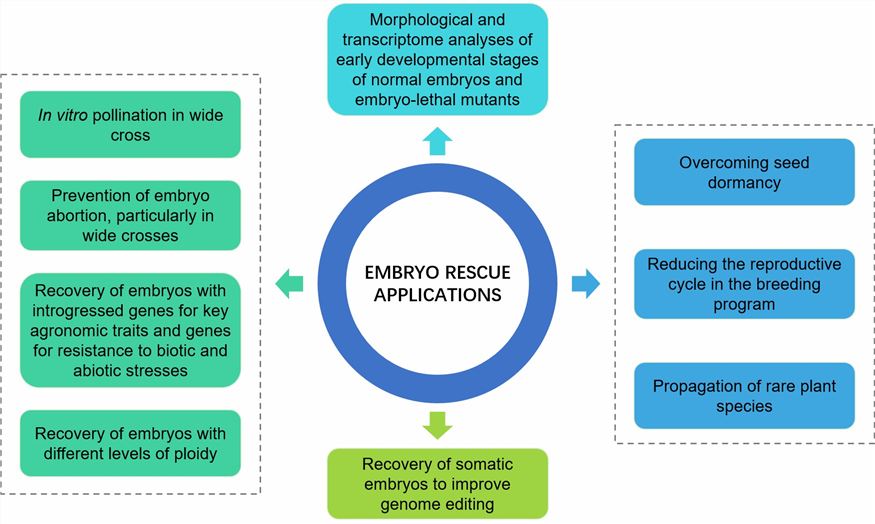Lifeasible provides customized embryo rescue solutions to customers around the world based on its established plant tissue culture and plant breeding technology platform. We ensure that we provide our customers with high-quality and reliable technical services to help them shorten the plant breeding cycles.
The growth of plants is affected by many factors. Due to damage by physical, chemical or genetic factors, some zygotic embryos are aborted or degenerated in the early stages of development and cannot grow into complete plants. Embryo rescue is an in vitro culture technique used to rescue immature or weak embryos so that they can grow and develop into viable plants. The embryo rescue technique plays an important role in modern plant breeding. It has been widely used for producing interspecific and intergeneric hybrids, as well as progenies of incompatible crosses which lead to embryo abortion.
Embryo culture is the most commonly used technique for embryo rescue. In addition to embryo culture, ovule and ovary culture, which is more suitable for small seeded species or very young embryos, can also be used for embryo rescue. Embryo rescue technology has important applications in interspecific or intergeneric breeding, rare plant propagation, and physiological research on seed germination and development.
 Figure 1. A diagrammatical representation of embryo rescue applications (Rogo, U., et al. 2023)
Figure 1. A diagrammatical representation of embryo rescue applications (Rogo, U., et al. 2023)
Lifeasible not only has advanced knowledge and experience in plant tissue culture and plant breeding, but also has feasible equipment and large-capacity greenhouses and fields for the cultivation and growth of plant materials. The embryo rescue services we provide are widely applicable to Gramineae, Solanaceae, Brassicaceae, Liliaceae, Asteraceae and other plants. Our experts will optimize media, temperature, light, humidity and other culture conditions according to different project requirements to ensure the successful implementation of embryo rescue.
Seeds from controlled pollination plants are collected prior to the expected embryo abortion occurrence, followed by isolation and excision of embryos, which are then placed directly onto culture medium for the generation of fertile plants. According to the different developmental stages of the introduced embryos, embryo culture is divided into mature embryo culture and immature embryo culture.
Ovule culture can simultaneously utilize the nutrients in the endosperm, nucellus and culture medium, so that the young embryo can continue to grow embryonicly under in vitro conditions. Ovule culture is a technology that separates ovules from the plant and then culture them in vitro under sterile artificial environmental conditions to further grow and develop into seedlings. Ovule culture can be divided into fertilized ovule culture and unfertilized ovule culture.
Ovary culture can provide a better environment and rescue hybrid embryos that may be aborted during development. Ovary culture requires cutting flowers from pollinated or non-pollinated plants, isolating the ovary, and then placing it on a nutrient medium for in vitro culture to allow it to further grow and develop into a complete plant. Ovary culture can be divided into pollinated ovary culture and non-pollinated ovary culture.
01
Customized embryo rescue procedures
02
Tailored culture conditions to increase success rates
03
Efficient and high-quality services with competitive price
04
Data collecting, analyzing, reporting and consulting
Lifeasible provides comprehensive plant breeding and plant tissue culture solutions, and we also offer a range of products to support our customers' research. Our one-stop service will greatly shorten the breeding cycle.
Reference